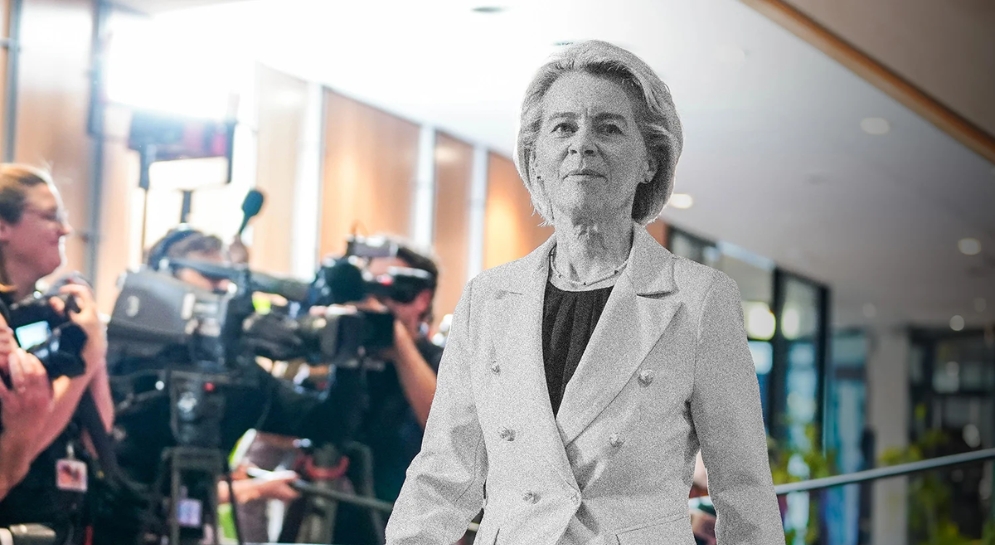
“An assessment of the Commission over the last ten years” by Costas Christodoulides, Head of the International Relations and European Affairs Department of the Central Committee of AKEL
24th October 2014
 The second term of the Barroso Commission, which has come to an end, cannot be judged in a fragmentary way, but along with its first term, as well looking at the whole character and policies of the European Union. The President of the Commission does not act alone, but part of the web which makes the EU an advanced form of capitalist integration, indeed in the midst of a great crisis of the system in which it itself is a leading protagonist.
The second term of the Barroso Commission, which has come to an end, cannot be judged in a fragmentary way, but along with its first term, as well looking at the whole character and policies of the European Union. The President of the Commission does not act alone, but part of the web which makes the EU an advanced form of capitalist integration, indeed in the midst of a great crisis of the system in which it itself is a leading protagonist.
In the first Barroso term the promise was given that by 2010 the EU would become the world’s most competitive economy. The reality is stark. Until the assumption of the second term in 2009, the EU was in a deep crisis; a crisis which was exacerbated by the policies of the Lisbon Strategy that the Commission faithfully served. Namely, the policies promoting the liberalisation of the labour market, telecommunications, electricity, credit liberalisation, unilateral incentives to big capital, the curbing of the state’s social role and the toughening of the Stability Pact.
During the second term of the Barroso European Commission, the dogma of the liberalisation of the markets, which led through the banks and financial sector to the crisis of over-accumulation of capital, mass unemployment, rising poverty and the closing down of SME’s, has not changed, but instead has been updated.
The aspirations of all those expecting the eradication or at least a curbing of the neo-liberal dogma’s attacks has been refuted. The pompous declarations about combating poverty included in the EU 2020 Strategy, which is the successor to the Lisbon Strategy, are being exposed by the same tools that are being used in the EU’s economic policy. The emphasis remains on boosting the competitiveness of businesses that curbs working people’s rights to the benefit of the multinational monopolies and big capital. The on-going loss of rights and fall in standards at work, mass unemployment and precarious forms of employment, namely the very foundations of the new EU 2020 Strategy, render social inequalities as the fundamental characteristic of European societies. Whilst on the one hand approximately 4 Billion Euros have been channelled to the banks to bail them out, on the other the developmental budgets of states are being curbed drastically, unemployment benefits are under attack due to the reduction in social insurance. The crumbs are finishing…
During the second Barroso Commission, the EU promoted the employment of young people on personal contracts or trainees as a solution to the social consequences of the crisis, a fact that allows on the one hand the monopolies to profit even more from the reduction in labour costs and on the other, to drive working people into poverty. The EU targeted and indeed is still targeting state expenditures, and the first victims of these policies are the peoples of Europe.
In 2004 when Barroso assumed his post unemployment stood at 9% (unemployment did exist before the crisis for all those who like to forget this fact!) and 10 years later, despite all the pretentious announcements, unemployment has risen to 11.5% and 24.6% among young people. Today, 122 million people are in poverty, namely 24.5%, whilst in 2004 the corresponding figure was 16%. On the opposite end, profit percentages of non-financial businesses have remained at around 38%, almost the same as they were before the outbreak of the crisis. However, small businesses are closing down. These are not our figures but of EUROSTAT.
In the field of foreign policy, the EU played a negative role and has not in the slightest established itself as a force for peace. It has taken contradictory decisions, for the sake of overthrowing the Assad regime, enabling the strengthening of extremist fundamentalist forces that at that time contributed to the goals of the EU and USA.
The EU implemented a policy of double standards in international relations. On the one hand it sided with the militarist state of Israel and the murderous attacks in Gaza and on the other imposed economic sanctions on Russia, tolerating a coup d’état and carrying out blatant interventions in Ukraine. EU-NATO relations have never been so close. The EU is participating in military missions outside its borders in full coordination with NATO, spending on military budgets all that is required to overcome certain social consequences of the crisis. None of the Commission vision’s had the suffering peoples at the centre of its attention. Besides how could it, bearing in mind such structures, whilst even the structural funds had reduced their contributions towards curbing inequalities between countries and regions.
Without question, the imposition of Troika-type programmes, in cooperation with the International Monetary Fund and the neo-liberal institutions and policies, represented the “icing on the cake” of a perverted solidarity which in fact imposes all that the ruling class had not – until then – been able to achieve: that is to say, poverty, pressure for the selling-off and privatisation of the public sector and services of general interest, the imposition of flexible labour relations and eventually increasing unemployment and rising semi-employment. In the end, Cyprus is suffering from this creation of the Union too, which in alignment not only with Right-wing governments, is imposing for the sake of some warped restructuring of the banking sector, foreclosures of primary family residences and worsening the phenomenon of homeless people.
If there is one pledge the European Union has fulfilled over the last decade it is of prosperity – prosperity for the privileged few and poverty for the many.




